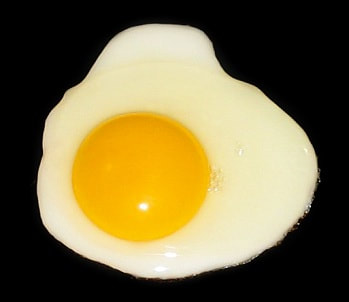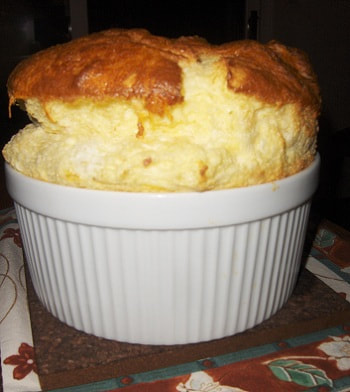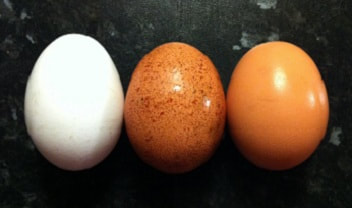|
Hobbits, you will remember, were great connoisseurs of food and tobacco flavors as well as riddles. One of the riddles Bilbo used to trick Gollum deep under the Misty Mountains was a very old one. A box without hinges, key or lid, Yet golden treasure inside is hid The answer, naturally, is an egg. It’s such a marvelous invention; the egg is a completely contained and self-protected package of protein and nourishment that lends itself to endless uses. Some great writer claimed that the ideal meal is a perfectly cooked omelette, a crisp salad and a glass of Sancerre. A great food writer pared that down to an omelette and a glass of wine. I could vote for that but I’d miss the salad. Eggs were being foraged before there were food historians to document it. In India, along about 3200 BC, someone noticed that removing the eggs from a nest would entice the hen to lay additional eggs. Thus began the domestication of the egg and the chicken. But they never explain which was first. Eggs are the epitome of versatility. They can be poached, hard or soft boiled, fried up or over, scrambled, souffléd, souped, shirred or baked. Without eggs, there would be no custards, and fewer cakes, no French Toast, no pancakes or egg noodles. In fact, it is hard to image our cuisine or our food culture without the egg. The French claim invention of the omelette, though perhaps they meant that they perfected it. The British adopted the process and the French spelling, but the Americans went their own way (there’s a surprise) with omelet. Omelets, however you choose to spell it, have been an integral part of Japanese and Chinese cuisine for eons. Surely others can say the same. The art of the omelet is actually simple. It is best when the eggs are whipped with a whisk to incorporate air which makes the omelet lighter and fluffier. Though it only takes minutes, an omelet prefers low to medium heat. It is perfected when cooked through, with a bit of a golden gloss. Avoid making it brown or it will have dried out. Eggs play well in the sandbox with many other ingredients, herbs and spices, giving way to flavor explorations and to creating omelet varieties from jelly to fine herbs to bacon with tomatoes and to elegant rich cheese omelets.
In previous columns we’ve provided recipes for other kinds of omelets: Ramp Frittata, Oven Frittata and a Caramelized Onion Frittata. Today we are offering a simple Feta and Basil Omelet. It makes a great quick dinner or an elegant lunch.
0 Comments
Leave a Reply. |




